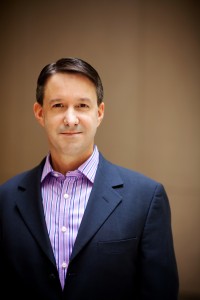“What is College?””
BIOGRAPHY
 Jeffrey Selingo, an author, reporter, columnist, and leading authority on higher education, has spent his journalism career covering colleges and universities worldwide.
Jeffrey Selingo, an author, reporter, columnist, and leading authority on higher education, has spent his journalism career covering colleges and universities worldwide.
His forthcoming book, College (Un)Bound: The Future of Higher Education and What It Means for Students, to be released on May 7, will explore the college of future – how families will pay, what campuses will look like, and how students will learn and prove their value in the job market.
Selingo is editor at large of The Chronicle of Higher Education and a senior fellow at Education Sector, an independent education think tank in Washington, DC.
From 2007 until 2011, he was editor of The Chronicle, where he worked for 15 years in a variety of reporting and editing roles. His work has been honored with awards from the Education Writers Association, Society of Professional Journalists, and the Associated Press, and he was a finalist for the Livingston Award for Young Journalists.
He has been a featured speaker before dozens of national higher-education groups and appears regularly on regional and national radio and television programs, including NPR, ABC, and CBS. His writing has also appeared in The New York Times, The Washington Post, The Huffington Post, and he is part of the inaugural class of thought leaders writing for LinkedIn Today.
He received a bachelor’s degree in journalism from Ithaca College and a master’s degree in government from the Johns Hopkins University.
jeffselingo.com
PRESENTATION
What is College?
The economy is changing at warp speed. The ten jobs most in demand in 2010 did not exist in 2004, and this trend has implications for everyone in higher education. Colleges need to create the opportunities and the structure to allow students to engage in activities that will help them develop the skills necessary to succeed in the workforce of tomorrow. Those activities include one-on-one mentorships with faculty, global experiences, undergraduate research, experiential learning, and opportunities for creativity and learning from failure. All these are attributes of a liberal education, of course, but they don’t necessarily all happen within the confines of a residential campus in a four-year period. The basic building blocks of a liberal-arts colleges are more valuable than ever, but the institutions still need to rethink their model for the future student who demands a flexible experience.
